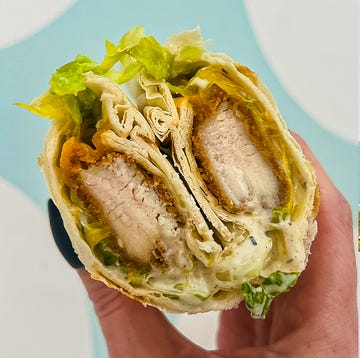The battle between buying organic and sticking to conventional groceries may never truly end. Between price gouging and suspected health benefits, the arguments for and against both options are seemingly endless. But two scientific studies released earlier this week claim that there are, indeed, nutrition benefits to both organic meat and organic milk.
According to the European Commission—which paid for the $600,000 analysis—the organic versions of meat and milk contain 50 percent higher levels of omega-3 fatty acids, which help lower the risk of heart disease. "The fatty acid composition is definitely better," Carlo Leifert, professor of ecological agriculture at Newcastle University in England and the leader of an international team of scientists who performed the review, told theNew York Times.
The studies, published in The British Journal of Nutrition, are based on statistical evidence using a technique called meta-analysis that scalps conclusions from disparate studies. This is likely why researchers are still unsure if these nutritional differences translates to better health for those who eat organic on a regular basis.
However, nutrition experts routinely argue that omega-3 fatty acids offer numerous benefits. They're so widely believed in that when the United States Department of Agriculture revised its dietary guidelines in 2010, it urged consumers to eat more seafood because it is rich in omega-3.
Perhaps what's most interesting is that the higher level of healthy fatty acids does not come from the typical attributes of organic food—you know, like not using antibiotics, hormones, or genetically modified feed. Nope, the nutritional boost simply comes from the organically raised cattle spending significant amounts of time outside. This means they're eating grass and not grain like conventional animals.
"It's not something magical about organic," Charles Benbrook, an organic industry consultant and author of the studies, explained to the Times. "It's about what the animals are being fed."
Follow Delish on Instagram.














